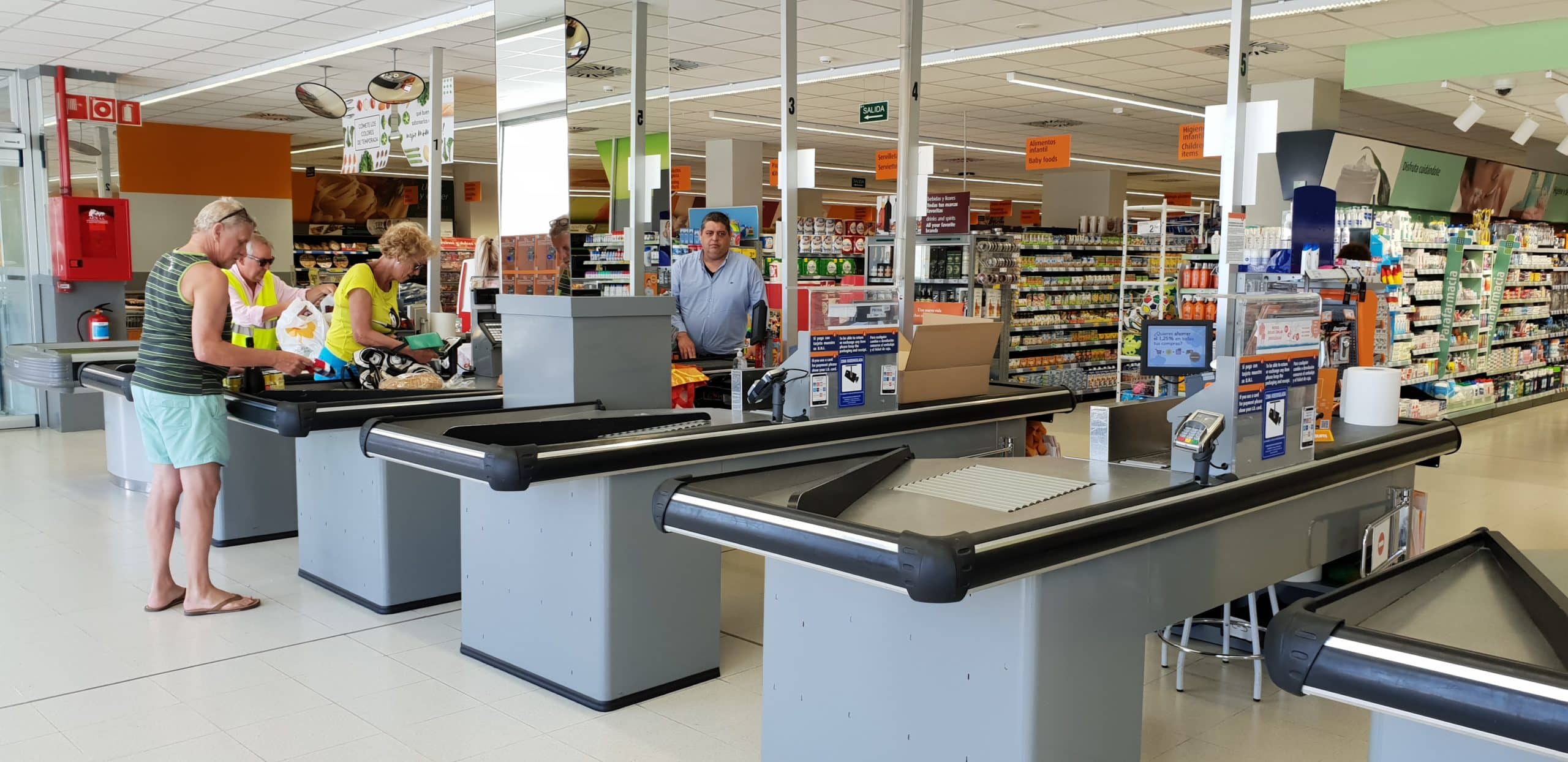Industrial action by truckers, which began on Monday, is starting to have an impact on the supply of some items in local supermarkets.
The strike, called by the Plataforma de Defensa del Sector del Transporte de Mercancías, brought together SMEs and self-employed drivers, who are all looking for solutions to the escalation in fuel prices.
As the week progressed action has gradually intensified, with incidents at entrances to logistics depots; blockades at port terminals and at entrances to supermarkets and department stores; and acts of vandalism against carriers who have not supported the strike.
Currently the only real shortages felt locally relate to fish and milk, with milk producers warning that supermarkets could be out of their product within 2 or 3 days, but coupled with the rise in electricity, fuel and the uncertainty due to the war in Ukraine the transport strike is making it more expensive to fill shopping carts, whether in a supermarket, in the market or in local stores, with some prices increasing by up to 20%, and while consumers accept these new costs with resignation, for the moment, they do not translate into major deficiencies.
While the French government, led by Emmanuel Macron, reached an agreement that ended it’s own truckers strike last Friday, with an aid plan of 400 million euros to alleviate the rise in fuel prices, there seems to be little progress being made with the situation in Spain, with many analysts already saying that Sánchez may already be making the biggest mistake of his tenure.
“Diesel is the straw that broke the camel’s back,” said Jose Hernandez, a representative for the Platform and a truck driver who lost his job on March 7. His company stopped operating because the fees it earned didn’t cover costs.
However, Transport Minister Raquel Sanchez has labelled the protest a “boycott linked to far-right groups”, a link which Hernandez denied calling the Platform non-partisan. In ‘guaranteeing’ supplies, the Interior Ministry has since reinforced security on the roads with 23,600 police officers to guarantee food supply. She says that the Government will act “forcefully” against “violence”.

In Valencia the mobilisations are already slowing down orders and preventing the supply of goods. “The mobilisations have drastically restricted the arrival of fruit from Andalusia and Murcia to the manufacturing centres located in the Valencian Community, from where 70% of the national production is handled and marketed,” said the Citrus Management Committee (CGC) in a statement. In addition, they point out that the supply to the main wholesale markets in the country, has been reduced “to the minimum”.
And already the first supermarkets are beginning to close. Lidl has lowered the blinds at two of its establishments in Asturias on Friday due to the lack of food supply in Galicia, a situation that, in the coming days, could spread to the rest of the sector due to the difficulties that suppliers are experiencing in order to replace their stocks.
Meanwhile, Sanchez has made it clear that she is not going to meet with the protesters pointing out that she will only talk with the National Committee for Road Transport (CNTC), because “it represents 90% of the sector, small companies and the self-employed”. “I am not going to sit down with a group of ultras who are trying to subject this country to blackmail,” the minister said.





